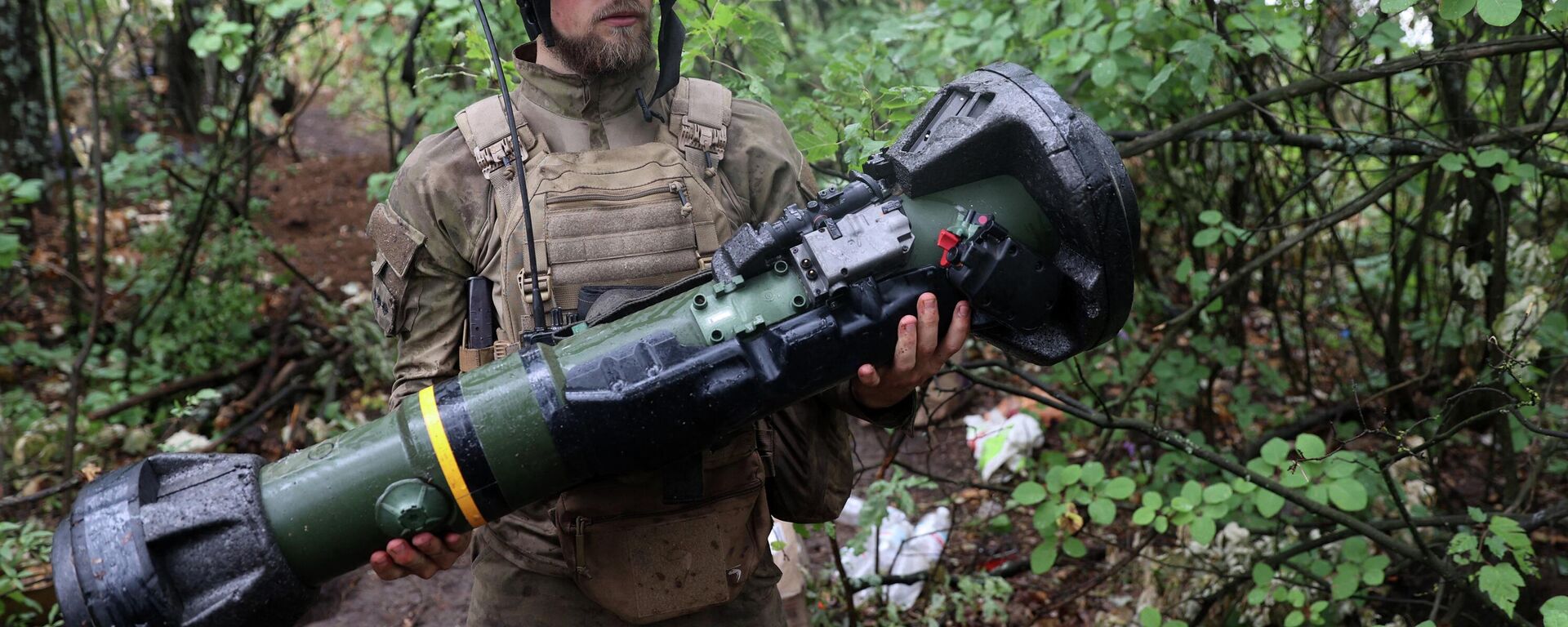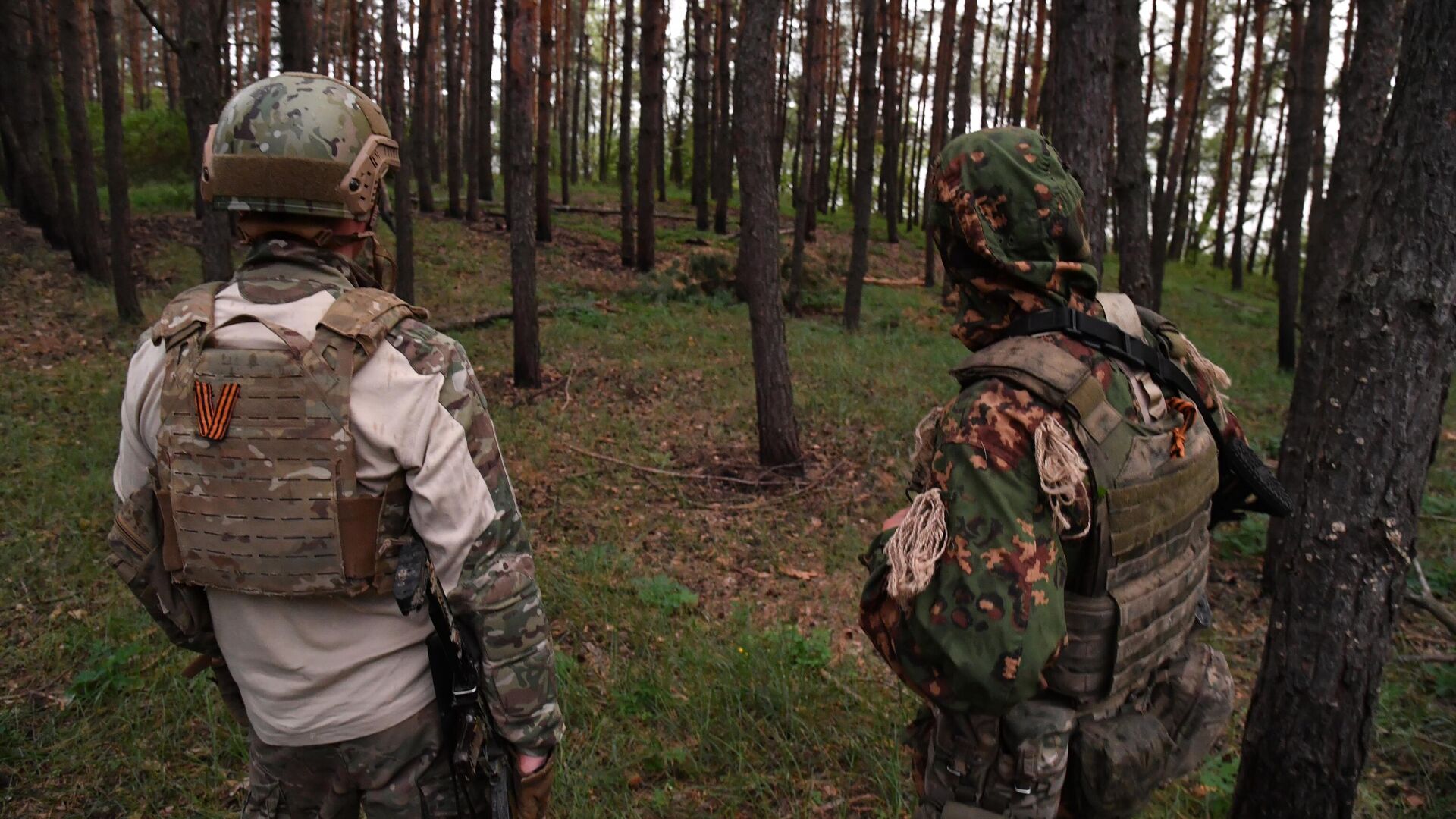https://sputnikglobe.com/20221118/ukraines-preconditions-for-negotiations-with-russia-not-a-peace-plan-but-a-wish-list-analyst--1104379486.html
Ukraine's Preconditions for Negotiations With Russia 'Not a Peace Plan But a Wish List': Analyst
Ukraine's Preconditions for Negotiations With Russia 'Not a Peace Plan But a Wish List': Analyst
Sputnik International
Media reported on Friday that French President Emmanuel Macron said that he hopes Kiev will return to the negotiating table with Russia and he expressed his... 18.11.2022, Sputnik International
2022-11-18T11:17+0000
2022-11-18T11:17+0000
2022-11-18T11:17+0000
russia
ukraine
analysis
peace talks
negotiations
volodymyr zelensky
minsk agreements
https://cdn1.img.sputnikglobe.com/img/07e6/09/15/1101034725_0:191:3072:1919_1920x0_80_0_0_e2a5292ff2b4c287bb9d9ccd67a3a1f7.jpg
In an interview with Sputnik, Paolo Raffone, a strategic analyst and director of the CIPI Foundation in Brussels, expressed his opinion on the possibility that Russia and Ukraine will enter into negotiations along the lines of Ukrainian President Volodymyr Zelensky's "peace formula" and the Minsk accords.Sputnik: Do you expect Kiev to return to the negotiating table? Is it possible that the negotiations will be successful?Paolo Raffone: Negotiations are a phase of every conflict. The scope of negotiations is to test each other on minimum/maximum acceptability of conditions to determine if further use of force is necessary to create the pre-conditions conducive to a negotiation. The outcome of negotiations in conflict situations when no one is a clear winner, that is neither side concedes defeat, in the best case bring to a truce (i.e. temporary halt of active warfare) that requires guarantees/guarantors to be implemented/respected over the time. If a truce holds, the peacebuilding support measures provided to the belligerents by a group of mutually accepted countries will work to identify and seek solution one-by-one to each outstanding issue/claim of either side by mutual agreement. It is a long process constellated by ups and downs, and it may fail. Sentiments and scars of war are long to be hailed, and the leaders’ narratives/communication is very sensitive to them, with the risk of derailing negotiation efforts/opportunities.In the Russia/Ukraine conflict, the direct belligerents, it must be added the other actors having a role in the conflict: Poland, with some Baltic and Nordic states; United States and NATO; Germany and the EU including the co-belligerent member states (supplying defense capabilities/systems to Ukraine). All these actors must be constructive/responsible parties in all the phases of the negotiations process. To date there have been direct military-to-military and security-to-security contacts between the US-Russia, Russia-Ukraine, and US-Ukraine. If such contacts will translate into negotiations remains to be seen. In the current circumstances the winter season freezes the battleground and provides a window of opportunity to eventually negotiate between now and the end of February (2-3 months).In the current situation, if the direct contacts have had any minimal positive meaning, the most credible path to follow is to urgently convene the UN security Council to vote unanimously on the establishment of a negotiation process (open-ended) to be under the leadership and responsibility of a group of countries-guarantors accepted by all direct/indirect actors to the conflict. It is of paramount importance to define and establish a method and system to control/maintain the absence of warfare, to identify/denounce publicly the interferences/destabilization to the truce and the deliberate attempts of any side/group to hinder the negotiating process. The specific agenda and the specific items to negotiate must be identified/accepted in a public joint announcement by the two belligerents and by the other above-mentioned actors.Sputnik: Despite Zelensky's rejection of Minsk-3-like agreements, his "peace formula" is quite similar to some of the Minsk agreements' parts. What is different about Zelensky's plan?Paolo Raffone: The 10 points of the Ukrainian “peace formula” as published by the presidential office: radiation and nuclear safety; food security; energy security; release of all prisoners and deported persons; implementation of the UN Charter and restoration of Ukraine’s territorial integrity and the world order; withdrawal of Russian troops and cessation of hostilities; restoration of justice; countering ecocide; preventing escalation; and finally - confirmation of the end of the war.The first reaction is that strangely some very important issues are missing: a) property issues; b) compensations and reparations; c) religious, cultural, linguistic issues; d) minorities issues; e) foreign fighters.The points - radiation and nuclear safety; food security; energy security; release of all prisoners and deportees; ecocide, the need for immediate protection of environment; prevention of escalation; confirmation of the end of the war – should pose no particular problems in the implementation. Notably, under “prevention of escalation” - international conference to cement the key elements of the post-war security architecture in the Euro-Atlantic space, including guarantees for Ukraine – the proposal does not mention the Ukrainian membership to NATO or the EU.The point “implementation of the UN Charter and restoration of Ukraine’s territorial integrity and the world order” is a nonstarter: “without any compromises with the aggressor”. Recalling the principle of art. 2 of the UN Charter does not mean that a negotiation can reach a settlement of borders other that those recognized in 1991. Europe, and particularly all Eastern Europe, have been living with mobile/undefined/contested borders for centuries and until today. It is a chronic situation that Ukraine cannot avoid.The point “withdrawal of Russian troops and cessation of hostilities” is a declaration of wishes that Ukraine puts as a precondition to the negotiations. Formulated in this way it is a nonstarter.The point “justice” is a legitimate wish, but its implementation will depend on the formulation of what the Ukrainian describe as a “special tribunal”. Moreover, the issue of justice is strangely mixed up with another issue “international compensation mechanism for damages caused by the Russian war” that should be dealt with separately from justice. This points requires reformulation and focusing, otherwise it is a nonstarter.Sputnik: What are the main disadvantages of this plan?Raffone: This is not a peace plan but a wish list. Legitimate and partially constructive. However, a peace plan cannot but be the result of negotiations between all parties and accepted by the UN Security Council.Sputnik: And how can we be sure that Kiev sticks to any kind of peace agreements given that it violated the Minsk accords?Raffone: The Minsk accords have been undermined and violated by all sides, including the proponents. To ensure that any type of agreement can have a chance to be respected it is necessary to put in place a very strict mechanism of control and conditionality.
https://sputnikglobe.com/20221117/nato-disarming-its-forces-as-ukraine-tries-to-provoke-world-war-iii-1104323356.html
https://sputnikglobe.com/20221010/multiple-explosions-reported-in-center-of-kiev-1101666220.html
russia
ukraine
Sputnik International
feedback@sputniknews.com
+74956456601
MIA „Rossiya Segodnya“
2022
Sputnik International
feedback@sputniknews.com
+74956456601
MIA „Rossiya Segodnya“
News
en_EN
Sputnik International
feedback@sputniknews.com
+74956456601
MIA „Rossiya Segodnya“
Sputnik International
feedback@sputniknews.com
+74956456601
MIA „Rossiya Segodnya“
negotiations, ukraine, russia, military operation
negotiations, ukraine, russia, military operation
Ukraine's Preconditions for Negotiations With Russia 'Not a Peace Plan But a Wish List': Analyst
Media reported on Friday that French President Emmanuel Macron said that he hopes Kiev will return to the negotiating table with Russia and he expressed his wishes for meaningful peace talks on Ukraine after the G20 summit.
In an interview with Sputnik, Paolo Raffone, a strategic analyst and director of the CIPI Foundation in Brussels, expressed his opinion on the possibility that Russia and Ukraine will enter into negotiations along the lines of Ukrainian President Volodymyr Zelensky's "peace formula" and the Minsk accords.
Sputnik: Do you expect Kiev to return to the negotiating table? Is it possible that the negotiations will be successful?
Paolo Raffone: Negotiations are a phase of every conflict. The scope of negotiations is to test each other on minimum/maximum acceptability of conditions to determine if further use of force is necessary to create the pre-conditions conducive to a negotiation. The outcome of negotiations in conflict situations when no one is a clear winner, that is neither side concedes defeat, in the best case bring to a truce (i.e. temporary halt of active warfare) that requires guarantees/guarantors to be implemented/respected over the time.
If a truce holds, the peacebuilding support measures provided to the belligerents by a group of mutually accepted countries will work to identify and seek solution one-by-one to each outstanding issue/claim of either side by mutual agreement. It is a long process constellated by ups and downs, and it may fail. Sentiments and scars of war are long to be hailed, and the leaders’ narratives/communication is very sensitive to them, with the risk of derailing negotiation efforts/opportunities.

17 November 2022, 18:39 GMT
In the Russia/Ukraine conflict, the direct belligerents, it must be added the other actors having a role in the conflict: Poland, with some Baltic and Nordic states;
United States and NATO; Germany and the EU including the co-belligerent member states (supplying defense capabilities/systems to Ukraine). All these actors must be constructive/responsible parties in all the phases of the negotiations process. To date there have been direct military-to-military and security-to-security contacts between the US-Russia, Russia-Ukraine, and US-Ukraine. If such contacts will translate into negotiations remains to be seen. In the current circumstances the winter season freezes the battleground and provides a window of opportunity to eventually negotiate between now and the end of February (2-3 months).
In the current situation, if the direct contacts have had any minimal positive meaning, the most credible path to follow is to urgently convene the UN security Council to vote unanimously on the establishment of a negotiation process (open-ended) to be under the leadership and responsibility of a group of countries-guarantors accepted by all direct/indirect actors to the conflict. It is of paramount importance to define and establish a method and system to control/maintain the absence of warfare, to identify/denounce publicly the interferences/destabilization to the truce and the deliberate attempts of any side/group to hinder the negotiating process. The specific agenda and the specific items to negotiate must be identified/accepted in a public joint announcement by the two belligerents and by the other above-mentioned actors.
Sputnik: Despite Zelensky's rejection of Minsk-3-like agreements, his "peace formula" is quite similar to some of the Minsk agreements' parts. What is different about Zelensky's plan?
Paolo Raffone: The 10 points of the Ukrainian “
peace formula” as published by the presidential office: radiation and nuclear safety; food security; energy security; release of all prisoners and deported persons; implementation of the UN Charter and restoration of Ukraine’s territorial integrity and the world order; withdrawal of Russian troops and cessation of hostilities; restoration of justice; countering ecocide; preventing escalation; and finally - confirmation of the end of the war.
The first reaction is that strangely some very important issues are missing: a) property issues; b) compensations and reparations; c) religious, cultural, linguistic issues; d) minorities issues; e) foreign fighters.
The points - radiation and nuclear safety; food security; energy security; release of all prisoners and deportees; ecocide, the need for immediate protection of environment; prevention of escalation; confirmation of the end of the war – should pose no particular problems in the implementation. Notably, under “prevention of escalation” - international conference to cement the key elements of the post-war security architecture in the Euro-Atlantic space, including guarantees for Ukraine – the proposal does not mention the Ukrainian membership to NATO or the EU.

10 October 2022, 05:46 GMT
The point “implementation of the
UN Charter and restoration of Ukraine’s territorial integrity and the world order” is a nonstarter: “without any compromises with the aggressor”. Recalling the principle of art. 2 of the UN Charter does not mean that a negotiation can reach a settlement of borders other that those recognized in 1991. Europe, and particularly all Eastern Europe, have been living with mobile/undefined/contested borders for centuries and until today. It is a chronic situation that Ukraine cannot avoid.
The point “withdrawal of Russian troops and cessation of hostilities” is a declaration of wishes that Ukraine puts as a precondition to the negotiations. Formulated in this way it is a nonstarter.
The point “justice” is a legitimate wish, but its implementation will depend on the formulation of what the Ukrainian describe as a “special tribunal”. Moreover, the issue of justice is strangely mixed up with another issue “international compensation mechanism for damages caused by the Russian war” that should be dealt with separately from justice. This points requires reformulation and focusing, otherwise it is a nonstarter.
Sputnik: What are the main disadvantages of this plan?
Raffone: This is not a peace plan but a wish list. Legitimate and partially constructive. However, a peace plan cannot but be the result of negotiations between all parties and accepted by the UN Security Council.
Sputnik: And how can we be sure that Kiev sticks to any kind of peace agreements given that it violated the Minsk accords?
Raffone: The Minsk accords have been undermined and violated by all sides, including the proponents. To ensure that any type of agreement can have a chance to be respected it is necessary to put in place a very strict mechanism of control and conditionality.




